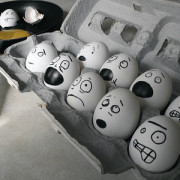Are robots more harmful than we think?
We have all seen the movies, read the books and even heard things from the weirdo at the back of the bus saying robots will take over the world and enslave the human race one day. Most of us will usually not take any notice or even laugh it off as a sign of paranoia, but do the movies; books and weirdo all have a point? Do they know something we don’t? Is there more to these artificial beings than just a way to aid the human race? Are robots more harmful than we think?
To decide whether these lifeless beings pose a threat to the human race we must first understand where robots came from. The original idea of artificial beings stems from the ancient world, although it wasn’t until the age of the industrial revolution that through the introduction of electricity made it possible to power machines using electric motors. Therefore in the early 20th century the modern concept of humanoid robots were conceived. The term ‘robot’ was coined in the 1921 science fiction play R.U.R (Rossum’s Universal Robots) by Czech writer Karel Capek whose brother Josef created the word from Czech word “robota” which roughly translates into servitude or job.
Of course not all robots are bad; robots are actually very beneficial to us. They help us with everyday menial tasks, the machine robots have helped us advance as a race by basically being the automotive, manufacturing and engineering industry by mass producing on a major scale because without robots we would have not seen demands met. Robots have taken humans out of dangerous and health hazardous jobs and probably saved a lot of human lives in turn. You can find robots anywhere from the retail industry to the entertainment industry but one of the most important jobs robots are conducting right now are in the medical sector. Robots are utilised within the pharmaceutical side of mass producing medicines for all types of medical conditions as well as preforming potential lifesaving surgeries on patients through human controlled robot surgeons. Of course as technology moves on there are more and more autonomous robots being created with a view in mind to make our lives easier, for example auto vacuum cleaners, self-driving cars and so on. But could this be making us too complacent? In short, not really but we could well be weakened as a race.
When discussing robots and their effect on the human race it is hard to deter from the topic of whether all these advantages of robots in the work place can be a disadvantage in the long run and lead to displacing humans in the workforce altogether? Could we be at the start of industries looking to invest in artificial intelligence for more than just laborious tasks, leaving more of us unemployed? It remains to be seen whether the bleak vision of current trending Hollywood films of a future of a globalised world filled with mass poverty, disease, and unemployment is true, where artificial intelligence is put in place to work for the rich whilst strictly controlling the poor. As more and more money is being used to fund the type humanoid robots that mimic human and even animal movement, we could be witnessing the actualisation of scenes straight out of the Terminator series. Adding to the fact that robots have the potential to be stronger, faster and more ruthless than humans. If the movies are true and robots develop their own agenda then we don’t stand a chance.
So are robots more harmful than we think?
Right now, no. In fact robots have been responsible for a lot of good and advancement for the human race; they have made our lives easier and maybe made us lazier, also robots do not have the capacity to feel emotions, to love, hate, envy etc. So they are only as smart as the human they are taking orders from. There is a lot of sensationalism about robots and what they have the potential to become and of course there is a potential for them to fall with the wrong people to utilise them in a wrong way and if we are not careful, things could become depressing like the films but one thing that is for sure it is in our own hands for now.







Trackbacks & Pingbacks
[…] be the foundations for something more sinister? We tried to warn you before in our previous posts. But in all seriousness it is the forward step in making language translations easier to […]
Comments are closed.